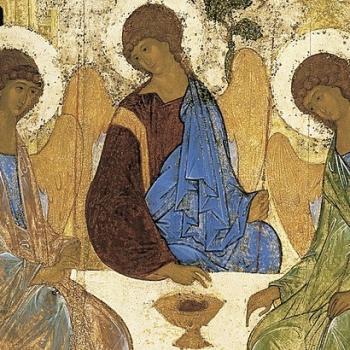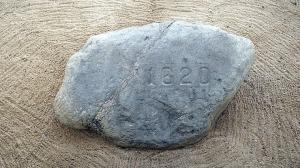You and I were made to praise something beyond our understanding. To desire someone that lives both in and beyond our daily activities. This is the meaning of the Jewish festival of Hanukkah. It’s also the meaning of the Christian story of the cleansing of the temple: the day when Jesus celebrated Hanukkah.

Maccabees and the Worship Offense
You can read the origin of Hanukkah in books of the Maccabees. Maccabees is the story of a massive Jewish revolt. Alexander the Great had conquered the Mediterranean basin and, before dying, had divided the empire among overlords. Antiochus, one of Alexander’s generals, inherited the land of Israel. He sent his army to capture Jerusalem, which they did fairly easily. They converted it into a garrison town, with militarized walls and patrolling soldiers. The Greeks then mocked the Jews by holding festivals in the temple and slaughtering a pig on the holy altar. The Temple was ruined for Jewish ritual now, even if Antiochus hadn’t outlawed it. Which he did.
The people of Israel were divided in their response. Some wanted to make nice with the Greeks. Others wanted to rebel, even given the ridiculous odds of failure. Revolts popped up here and there. The mass revolt only began in earnest after news of a Sabbath massacre trickled through the villages. The Greek army and their allies had chased a group of Jewish outlaws into the wilderness. They confronted them on the Sabbath. When the outlaws laid down their weapons—since the privilege of honoring Sabbath was part of what they were fighting for—the Greek slaughtered them all.
When Mattathias, from the town of Modin, heared of the slaughter, he was ready to fight. “If we do as our brothers have done, if we refuse to fight the Gentiles for our lives as well as for our laws and customs, they will soon wipe us off the face of the earth” (1 Macc. 2:40). It would take us too far afield to study the ethics of just war here. There’s a principle within, though, that isn’t a bad place to start. If genocide is imminent, self-defense is appropriate. Pile on now the theological insistence of the Bible—that the world’s salvation comes through the Jews—and it begins to look like Mattathias and his sons had a moral imperative to take up arms.
So Mattathias calls his sons to remember the stories of their ancestors and God’s covenant with the Tribes. Judas Maccabaeus, one of his sons, emerges as the leader of the many bands of rebel Jews. The story alternates between gory battle scenes and the heart-wrenching accounts of torture and loss within Jewish families.
The First Hanukkah
And so it happened that in the month of Kislev, three years after the Greek army orgied their way through the Temple, Judas and his army won back the holy city. They cleaned and cleansed the Temple. They were unsure what to do with the defiled altar. No prophet was there to instruct them, so they dismantled it and put it in storage. Then they launched an eight day festival to celebrate the return of worship to the Temple. Jews call that commemoration “Cleansing,” or Hanukkah.
The eight day duration is significant. Judas reminded his army of the Festival of the Booths, an eight day commemoration of the way God sheltered the Tribes in the Sinai wilderness. The wilderness here, as there, was both literal and metaphorical. The outlaws hid in actual wild places; Israel is lost in another sort of desert without their place of worship. Indeed, their very humanity is at stake, as “they had been wandering in the mountains and caves like wild animals” (2 Macc. 10:6).
The miracle of the burning oil, which the Talmud describes, is all the more significant against the backdrop of this memory of Booths. Back then they watched through woven vines to see if the pillar of fire was still there to guide them. Here they watched to see if the lanterns in the sanctuary remained lit. Will the oil burn eight days? is a way of asking Will God restore our worship-centered life, as God brought us out of Egypt, in booths, into our Promised land? The oil lasts. Worship continues.
When Jesus Celebrated Hanukkah
When Jesus approached Jerusalem in Luke 19, he wept for the city and prophesied its imminent destruction. He was remembering, I imagine, the days of Antiochus and the Maccabean revolt. He was remembering also the Egyptian enslavement and the exile, when captivity caused the people to forget their God-given desire for God. Now he sees a Temple filled with regular market-day activities, as if these natural things were all we were made to desire.
So Jesus celebrated Hanukkah all alone that day, by insisting that the invitation to stop the daily activities and direct our desire toward God is key to being human. Without a space and time to rest joyfully in God’s presence, we’re not flourishing as the creatures God made us to be. We’re lost in the wilderness with no booths. So Jesus launched a just war to cleanse the Temple. He went Maccabean on the money changers.
The Natural Desire for God
We were made, Thomas Aquinas tells us, to desire God. To worship. The short circuiting of this desire can happen in dramatic ways, as in Maccabees. It can also happen in subtle ways, as in Luke. Desire for God can devolve while no one is looking, when cares, goals and projects claim us. “Market day activities,” let’s say. All that desire can be natural and good as well, but it nests in the deep center of human life: the desire for our Creator.
If humans aren’t resting joyfully in God’s presence, something is missing in our anthropology. If I neglect—or am denied—the chance to “bless the Lord” as the Psalmist puts it, then I’m actually cutting off my natural desire before it gets all the way home. I’m like someone who has never been outdoors. I’m staring longingly at a vinyl drop ceiling because I have no idea what the sky looks like. (That’s a riff on a C.S. Lewis line)
So, as the Bible tells it, God calls Israel to show the world who this God of rest and joy is. If Jews can’t worship, we’re all sunk. Every time Jews worship, they are reliving the Hanukkah celebration, when the Temple became once again a hospitable place for prayers and sacrifice. Every time Christians go to church, we’re reliving the Maccabean victory. We’re also reliving the day when the Jew named Jesus celebrated Hanakkuh by showing us what all our natural desire is really for.











